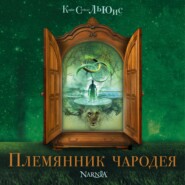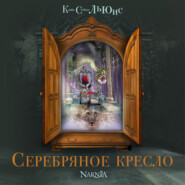По всем вопросам обращайтесь на: info@litportal.ru
(©) 2003-2025.
✖
Collected Letters Volume Three: Narnia, Cambridge and Joy 1950–1963
Настройки чтения
Размер шрифта
Высота строк
Поля
We are all very thankful—and you are no doubt more so—to see that at last there is some prospect of an end to this ghastly Korean war. Our only fear now is that it may be replaced by a Persian one; but it will be time enough to cross that river when we come to it.
With many thanks and all good wishes,
yours sincerely,
C. S. Lewis
TO MRS D. JESSUP (W): TS
RER328/51.
Magdalen College,
Oxford.
27th July 1951.
Dear Mrs. Jessup,
Thank you for your letter of the 21st. Someone (and someone I don’t even know) had been selected by Charles Williams as his biographer some time before his death, and is in possession of all the materials. So that is that! But don’t imagine you are losing anything. Biography is not in my line.
I agree most strongly with all you say about him, and wish someone really good could do him: but I would’nt, even if there were not another claimant in possession.
With all best wishes,
yours sincerely,
WH Lewis
Secretary.
(Dictated by Mr. Lewis)
TO THE EDITOR OF THE CHURCH TIMES (EC):
(#ulink_20299007-2835-5617-af73-c8e24d8a290b)
Magdalen College,
Oxford.
Sir,—
Having read Mr. Bradbury’s letter on the Holy Name,
(#ulink_0d5ccb7f-76f0-516a-97dd-0af52e794dff) I have a few comments to make. I do not think we are entitled to assume that all who use this Name without reverential prefixes are making a ‘careless’ use of it; otherwise, we should have to say that the evangelists were often careless. I do not think we are entitled to assume that the use of the word Blessed when we speak of the Virgin Mary is ‘necessary’; otherwise, we should have to condemn both the Nicene and the Apostles’ Creed for omitting it.
Should we not rather recognise that the presence or absence of such prefixes constitute a difference, not in faith or morals, but simply in style? I know that their absence is irritating to others. Is not each party innocent in its temperamental preference but grossly culpable if it allows anything so subjective, contingent, and (with a little effort) conquerable as a temperamental preference to become a cause of division among brethren? If we cannot lay down our tastes, along with other carnal baggage, at the church door, surely we should at least bring them in to be humbled and, if necessary, modified, not to be indulged?
C. S. Lewis
TO I. O. EVANS (W):
(#ulink_084ebc7e-c054-506b-8310-e5a938935f5c)
As from Magdalen College,
Oxford
4/8/51
Dear Evans
The Coming of a King
(#ulink_b2f9fea5-f8b3-5814-b57c-452ab0ec278c) arrived most opportunely when I was in almost solitary confinement recovering from mumps, and I read it at two sittings. I think it not only the best but incomparably the best book you have done. The others interested me but this really set wires jangling. I congratulate you. And I think it is a great thing to put that idea of the Stone Age—which is at least as likely to be the true one—into boys’ heads instead of Well’s or Naomi Mitchison’s. It’s all good. The marriage customs are amusing, the Ogres exciting, and the Dark Faces with their quest just add the something more. I hope it will be a great success.
Yours
C. S. Lewis
TO MRS C. VULLIAMY (W):
(#ulink_6081dfd3-032e-5495-a1dd-5b985a7b38fc) TS
RER347/51.
Magdalen College,
Oxford.
10th August 1951.
Dear Mrs. Vulliamy,
Many thanks for your most kind and encouraging letter of the 4th. With all best wishes,
yours sincerely,
C. S. Lewis
TO GEORGE SAYER(W):
Magdalen College
Oxford
15/8/51

















